
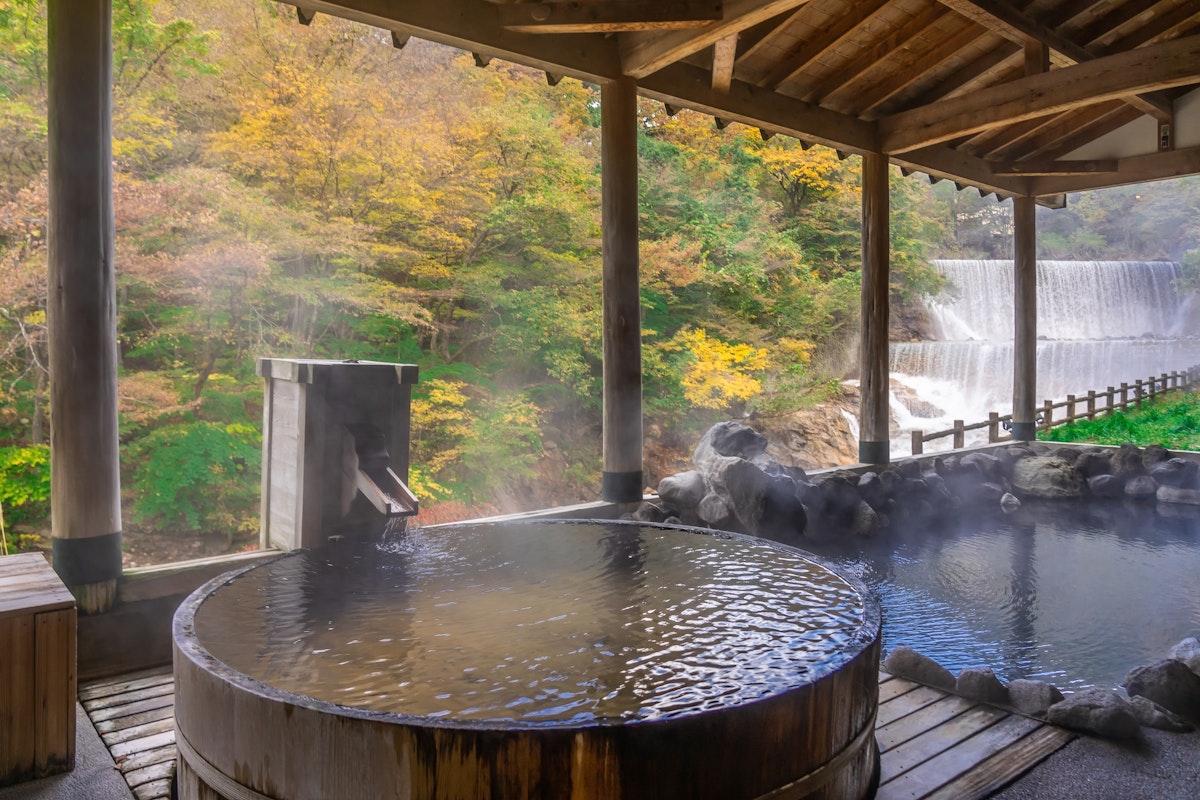
日本古城京都是那些想要沉浸在传统温泉体验中的人的天堂。这些自然温泉因其疗愈特性而受到欢迎,已经成为日本文化的一部分。京都拥有一些日本最好的温泉,提供各种类型的温泉浴 - 从繁华的市中心的公共浴场到宁静风景中的私人温泉。
京都的每个温泉都提供独特的体验,通常结合了地方习俗和现代舒适设施。你可以找到观赏美丽风景的户外浴池、提供宁静逃避的室内浴池,甚至有同时具备两者的设施。这座城市的温泉以其从深埋地下的泉水中提取的疗愈热泉水而闻名。无论你是想在著名的温泉中享受放松的浸泡,还是在一个鲜为人知的温泉中享受更亲密的泡澡,这个指南将帮助你导航京都最好的温泉。
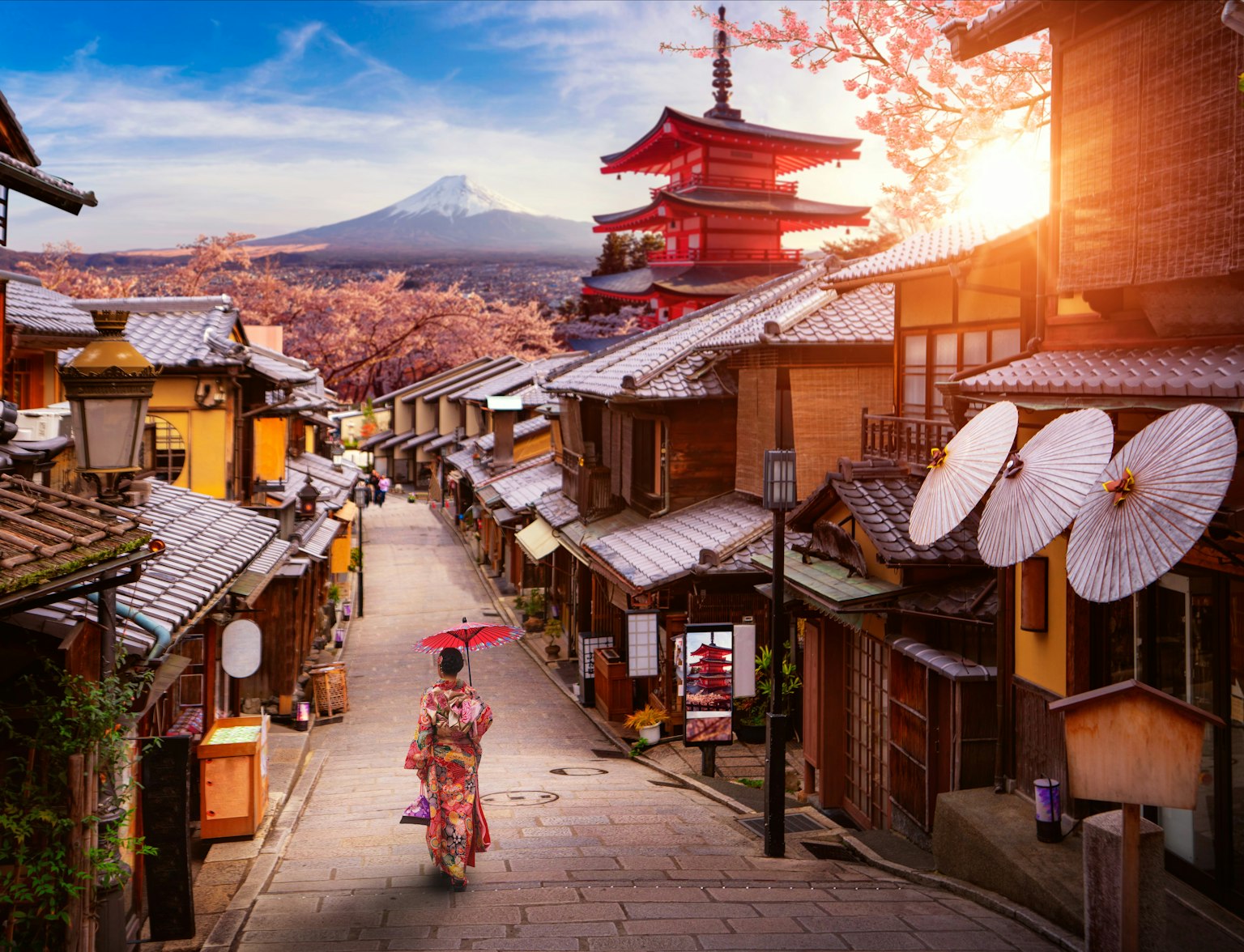
与私人导游一起开始京都的一整天冒险。
風浴温泉自1923年以来屹立不倒,是京都最古老的温泉。这座传统的日本浴室以其独特的沐浴选择而闻名,例如石缝中的露天浴池和提供轻微电流的'电浴'。木质内饰和昭和时代的建筑风格营造出一种让你仿佛回到过去的真实感。
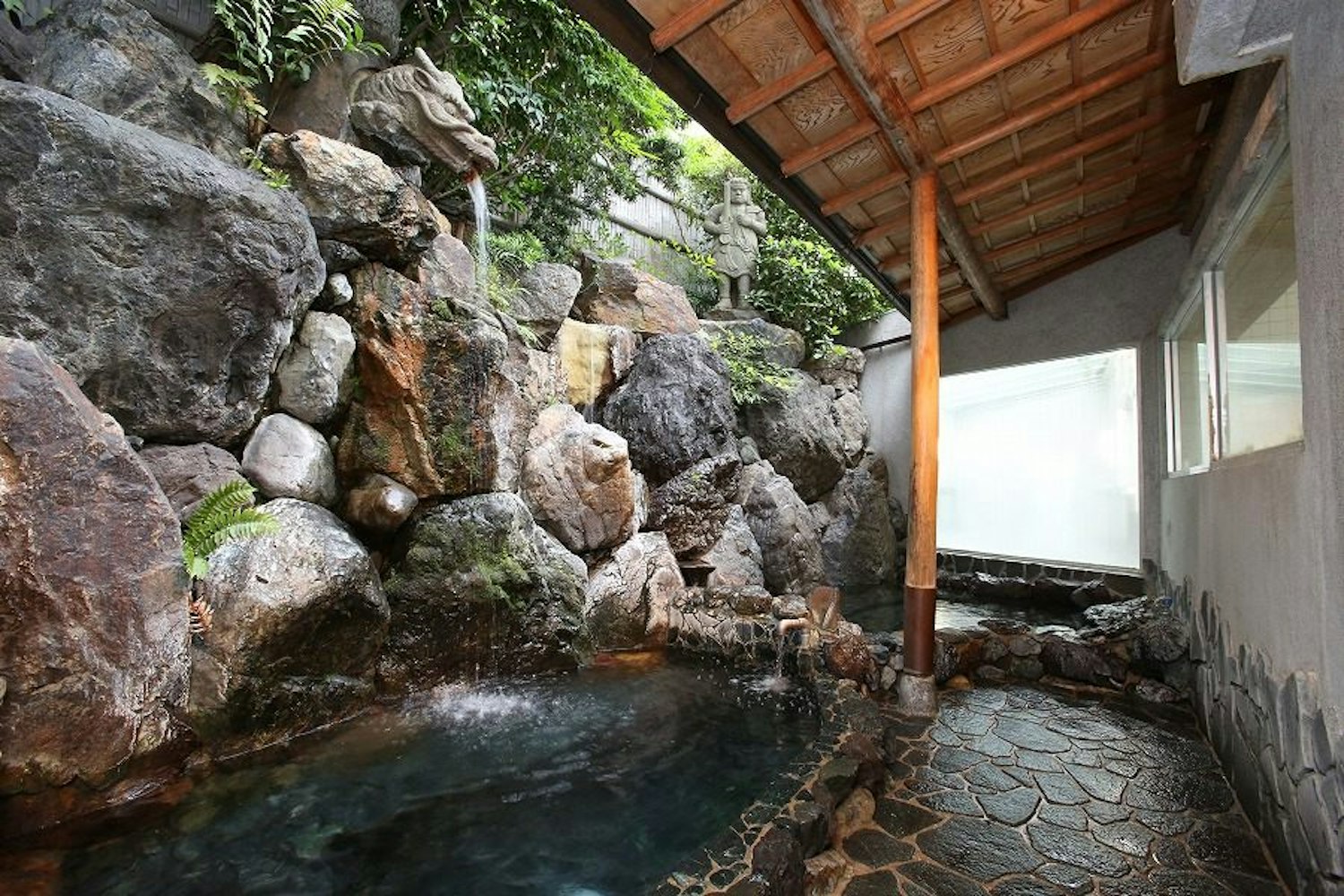
参观风浴温泉时,预计会沉浸在一段日本历史中。浴池的多样性也意味着你可以选择最适合你偏好的体验。然而,值得注意的是,风浴温泉不欢迎纹身,因此如果你有纹身,请准备好掩盖它们。
地址:京都市北区紫野南风丘町82-1。
入场费:大约490日元,只能用现金支付。
设施:风浴温泉提供多种沐浴体验,包括主浴池、浅水和深水浴池、喷射浴、电子浴、冷浴、香氛浴、露天浴和桑拿。可购买租赁毛巾和其他沐浴用品。
交通:乘坐京都市巴士206路线,在千本车站下车,然后步行5分钟即可到达温泉。
天山之汤温泉是一个综合的健康设施,超越了单纯的温泉。其广泛的功能包括富含镭的天然温泉浴、注入丝蛋白的丝浴和因其美容功效而闻名的碳酸浴。设施还包括桑拿、放松室和按摩中心,确保全面的健康体验。
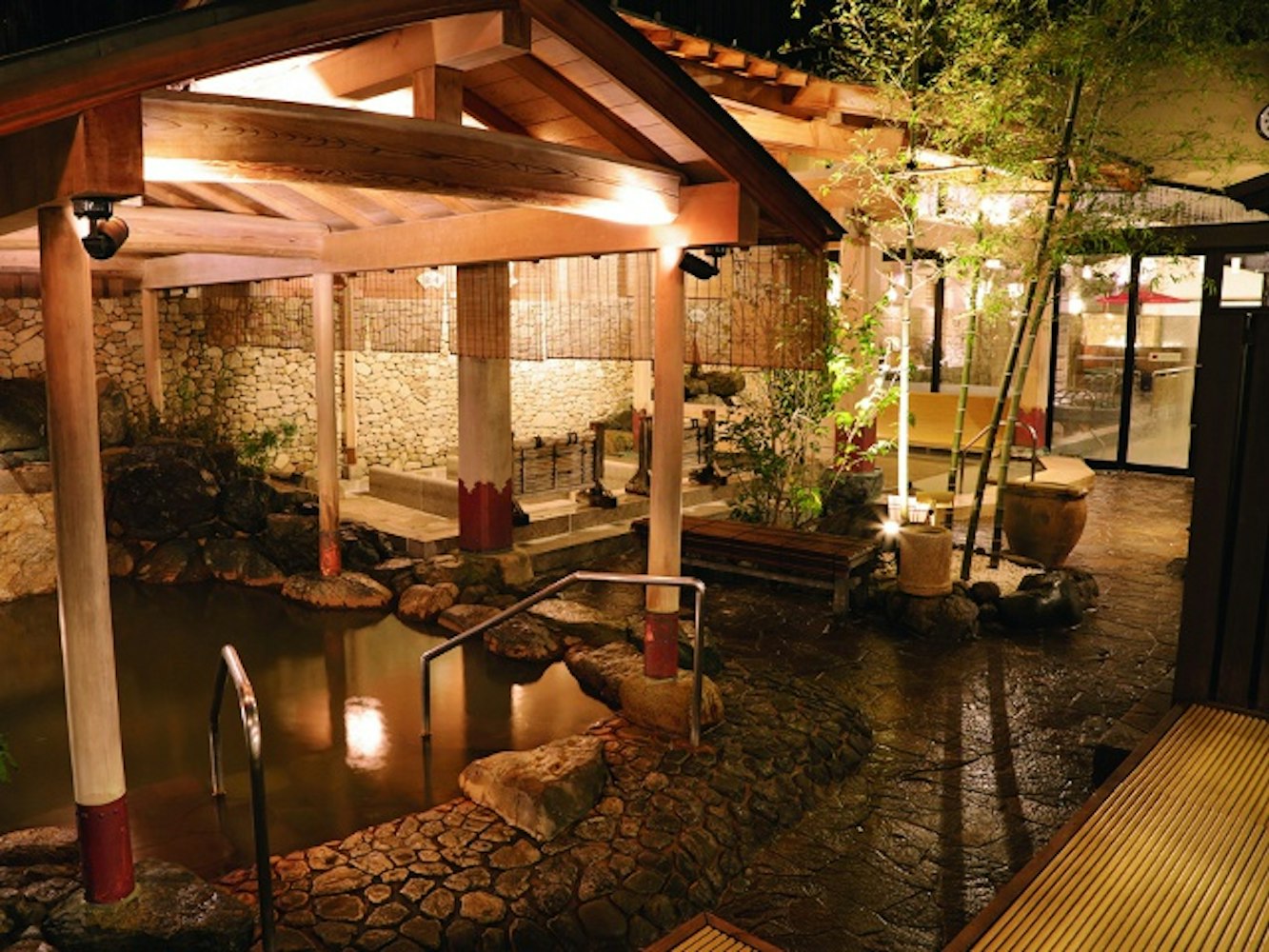
温泉每天从上午10:00开放至凌晨12:00,为客人提供充足的放松时间。周末和假期的价格略高,但所提供的体验值得。无论你是在天然温泉中寻找一个放松的浸泡,还是需要一次疗愈按摩,天山之汤温泉都能满足你的需求。
地址:京都府京都市右京区嵯峨宮之本町55-4-7,邮政编码:616-8315。
营业时间:温泉每天开放,从上午10:00到凌晨12:00。
交通:温泉位于岚山地区附近,可以通过从车站经过住宅区的短途步行到达,提供了窥视当地生活的机会。
藏身于京都北部的山中,鞍马温泉是一个将迷人的风景与舒缓的温泉结合在一起的退隐之地。温泉设有室内浴池和充满硫磺的户外浴池,这些泉水以其健康益处而闻名。
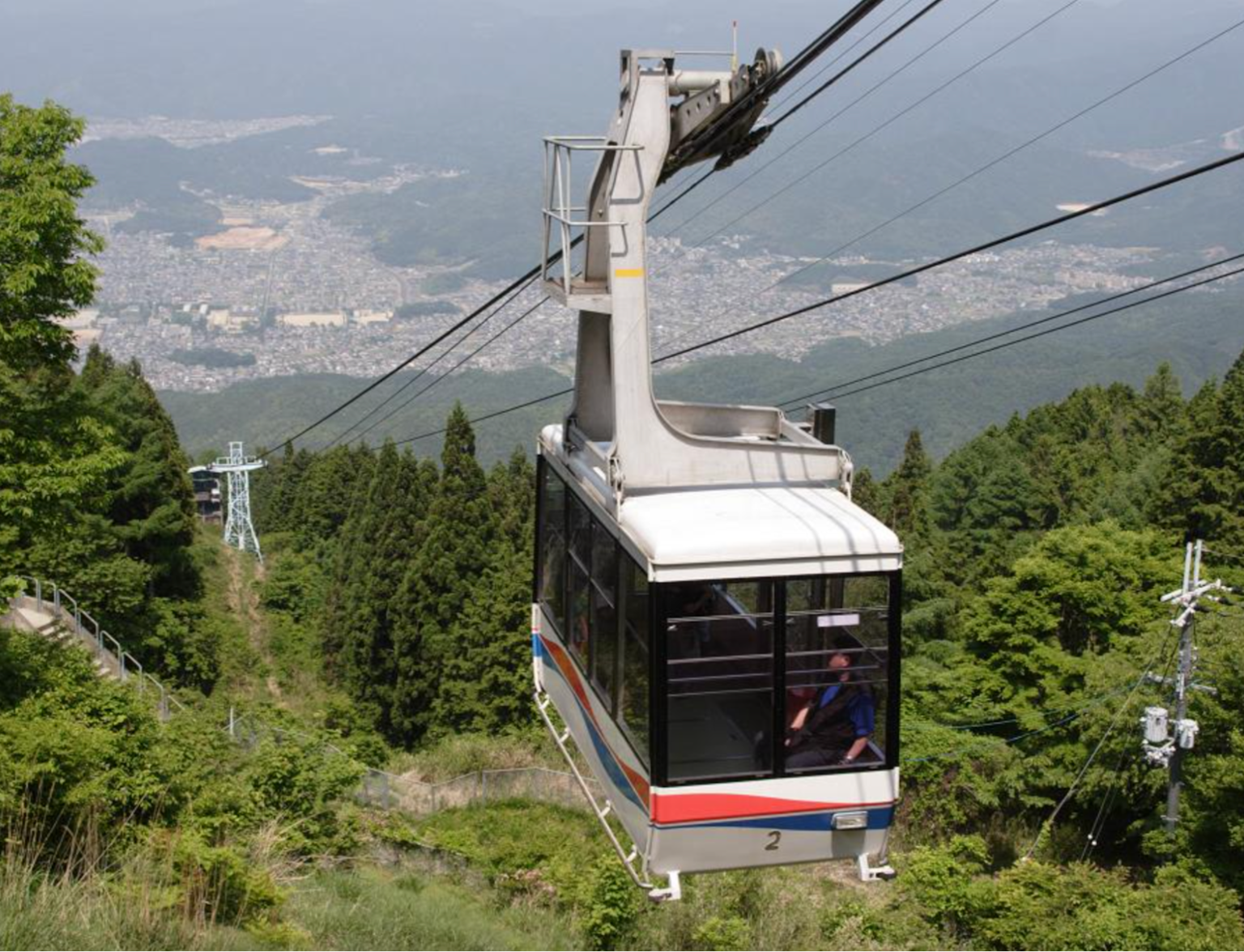
乘坐叡山缆车和索道的一程票,尽享全景美景。
前往鞍马温泉的过程就是体验的一部分。旅程始于从京都出发的出町柳站乘坐叡山铁路到达鞍马站。从那里步行不远即可到达温泉。这段火车旅程提供了美丽的乡村景观,为在温泉所期待的宁静体验铺垫了基调。
地址:京都市左京区鞍马本町520。
开放时间:鞍马温泉的开放时间为上午10:00至晚上9:00,但需要注意的是,在冬季(12月15日至3月31日),户外浴池会在晚上8:00关闭。
交通:到达鞍马温泉最方便的方法是自出町柳站乘坐叡山电铁,乘车时间约为30分钟。一旦到达鞍马站,可以步行探索小镇,主要景点距离车站步行即可到达。
嵐山温泉是一个与嵐山地区的宁静美景完美契合的温泉目的地。坐落在风景如画的山川之间,温泉提供了一个宁静的避风港,让你在疗愈的水中与自然连接。
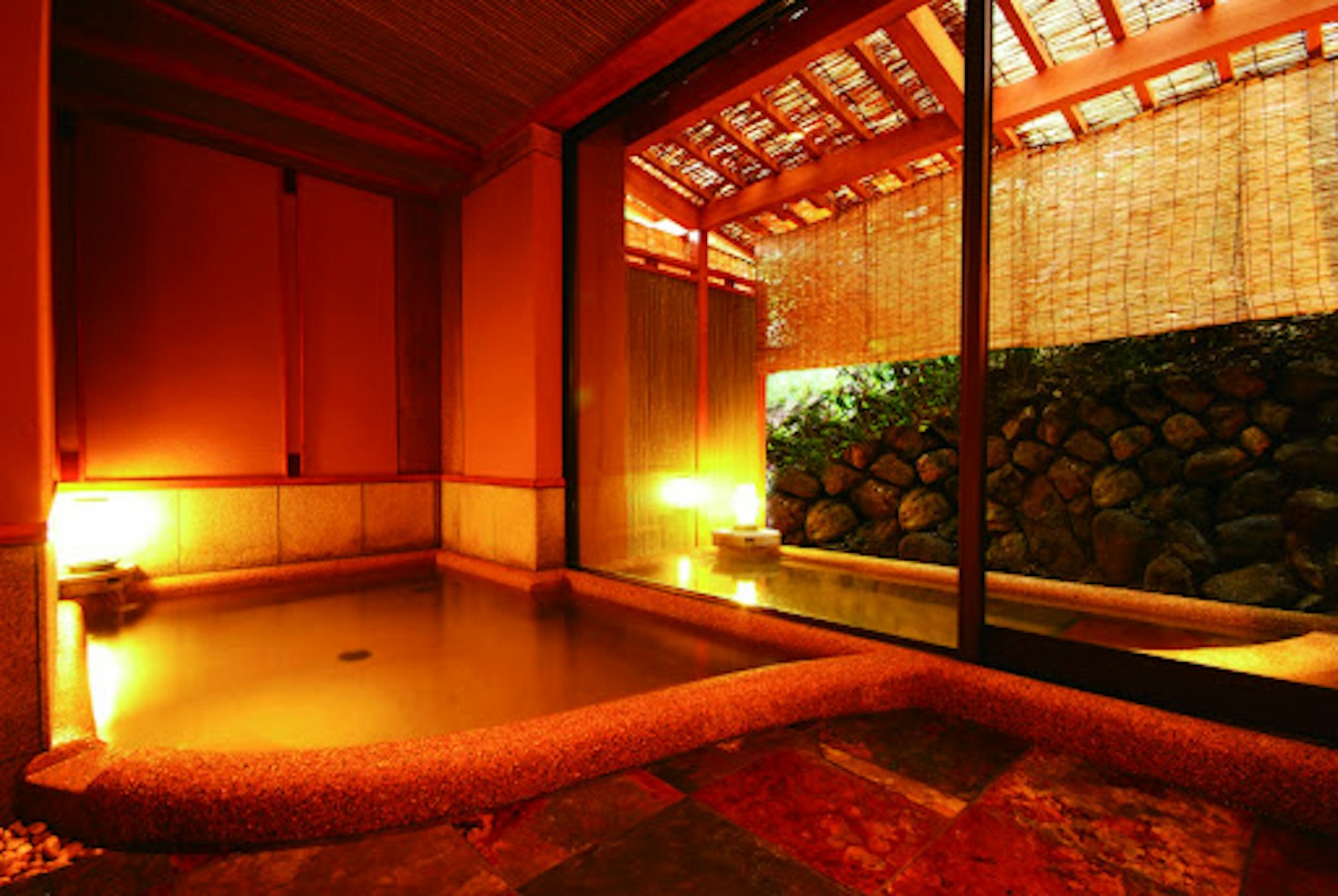
嵐山温泉的浴池充满了钠盐泉水,以其温热特性和健康益处而闻名,包括改善血液循环和缓解肌肉疼痛。无论你选择在室内浴池还是露天浴池浸泡,体验都承诺让你在美丽的自然风光中完全面放松。地址:京都市西京区嵐山西市河町5-4。
交通:距离阪急嵐山站仅需约1分钟步行。
5. 桂川温泉桂川温泉是位于桂川河畔的一个隐藏宝石。其位置提供了宁静的氛围,使其成为寻找远离繁忙城市生活的安静避风港的理想场所。
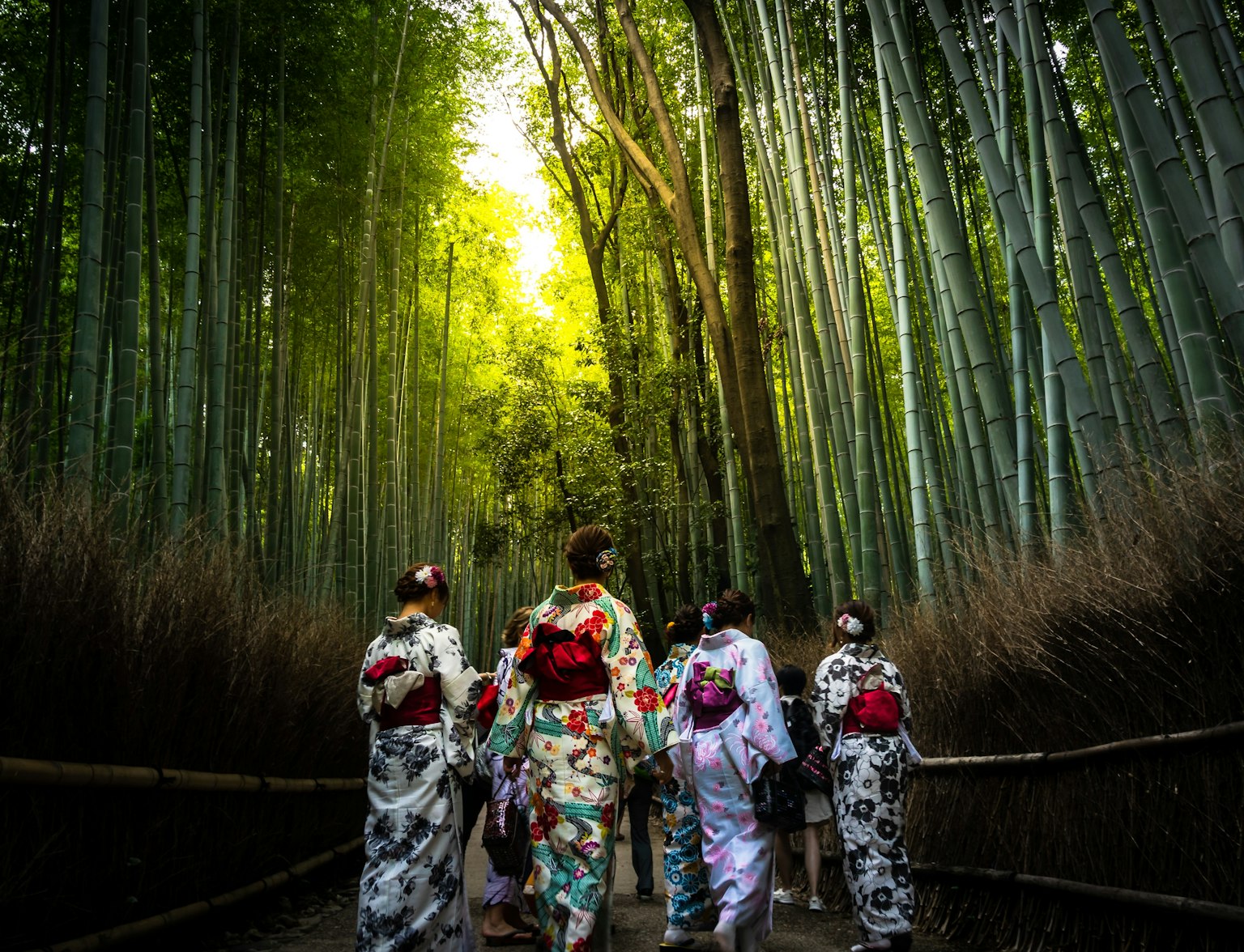
在这次充满活力的步行游中,发现岚山的魅力。
6. 炭屋喜保庵温泉
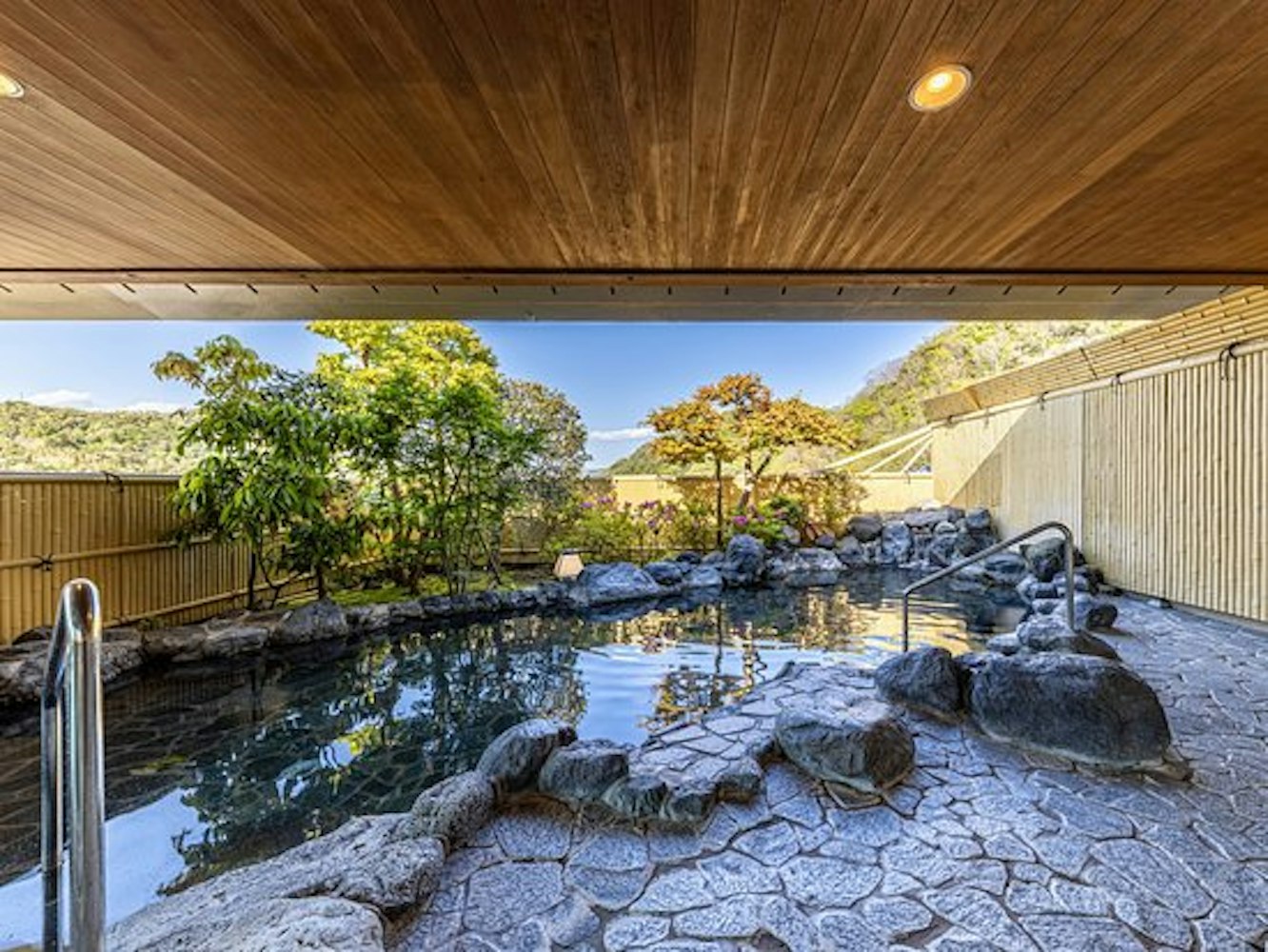
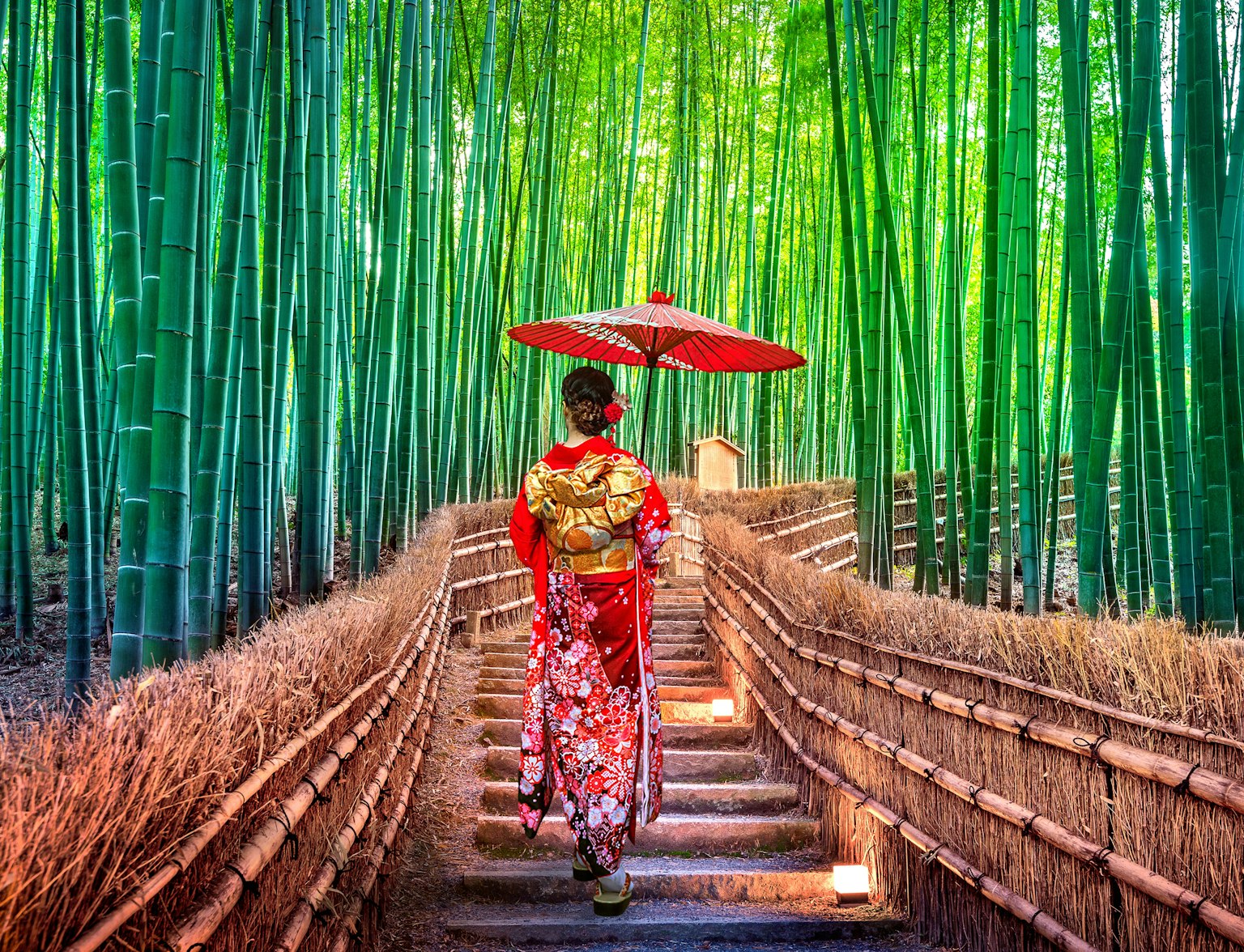
寻找风景如画的桂川,看看雄伟的渡月桥。
是位于京都山中的炭屋喜保庵旅馆的一部分。这家温泉提供了豪华的沐浴体验,设有私人浴池和公共浴池可供选择。炭屋喜保庵温泉的浴池充满了直接来自地下的天然温泉水。水被认为具有疗愈特性,能缓解压力和疲劳。凭借其美丽的环境和高质量的设施,这家温泉提供了真正奢华的温泉体验。地址
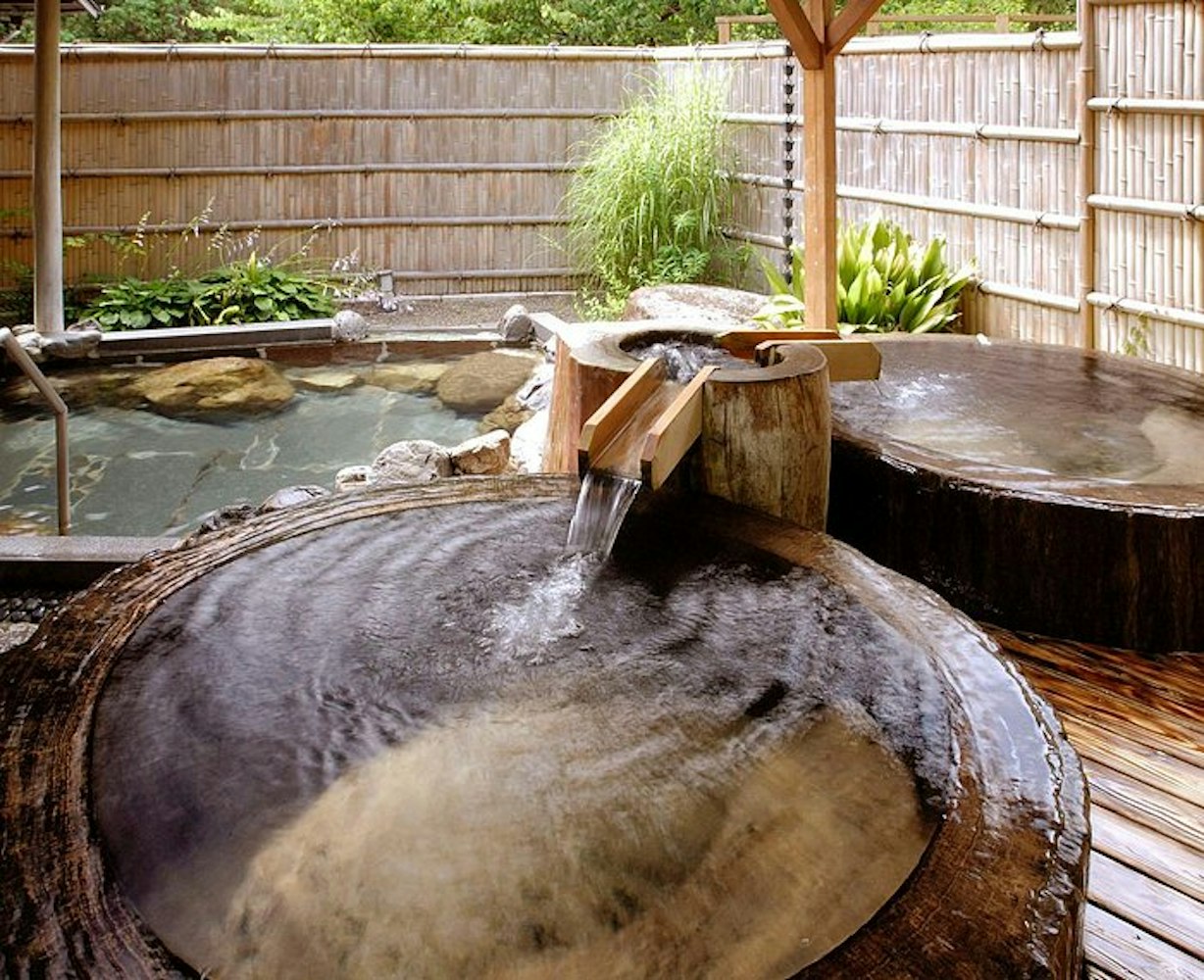
:京都府亀冈市日向野温泉。
交通:可通过从JR亀冈站乘坐巴士或通过京都纵贯高速公路驾车访问。提供从亀冈托萝客站和JR亀冈站的接送服务,但需提前预约。
7. 大原山荘温泉大原山荘温泉是位于大原的一个山间避难所。这个温泉被郁郁葱葱的绿意环绕,提供了绝佳的周围风景,非常适合寻找
的人。温泉设有充满天然温泉水的室内和户外浴池。这水以其高矿物质含量而闻名,据信具有多种健康益处。浸泡后,你可以在休息区放松或在现场餐厅享用一顿餐食,真正完美地完成一次恢复活力的体验。地址
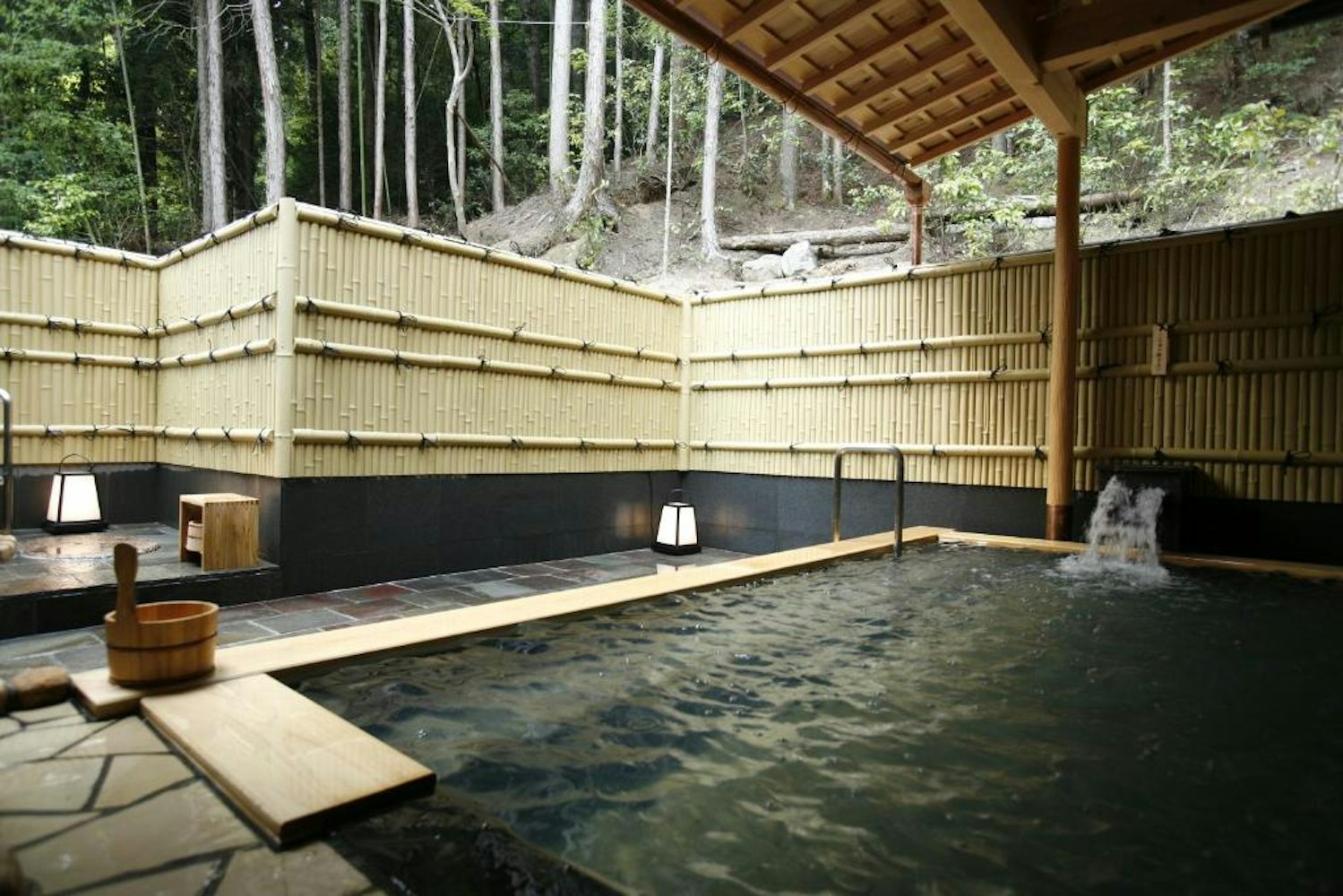
:京都市左京区大原草夫町17,邮政编码 601-1248。
交通:距离大原巴士站步行15分钟,或从国际会馆地铁站驾车15分钟。旅馆还提供从大原巴士站的免费接送服务。
8. 良庵汤豆腐西源院温泉良庵汤豆腐西源院温泉是一个静谧的绿洲,位于
附近。这个温泉在一个平静宁静的环境中提供独特的沐浴体验,体现了日本温泉文化的本质。它是探索寺庙景点后放松身心的完美场所。温泉设有多种浴池,每个浴池充满了以矿物质为基础的热泉水,以其疗愈益处而闻名。室内浴池提供了一个和平的放松空间,而露天浴池让你能够在周围花园的自然美景中浸泡。温泉还设有一家餐厅,让你可以享用传统的汤豆腐(豆腐火锅)餐,使得这里成为任何温泉爱好者必访的目的地
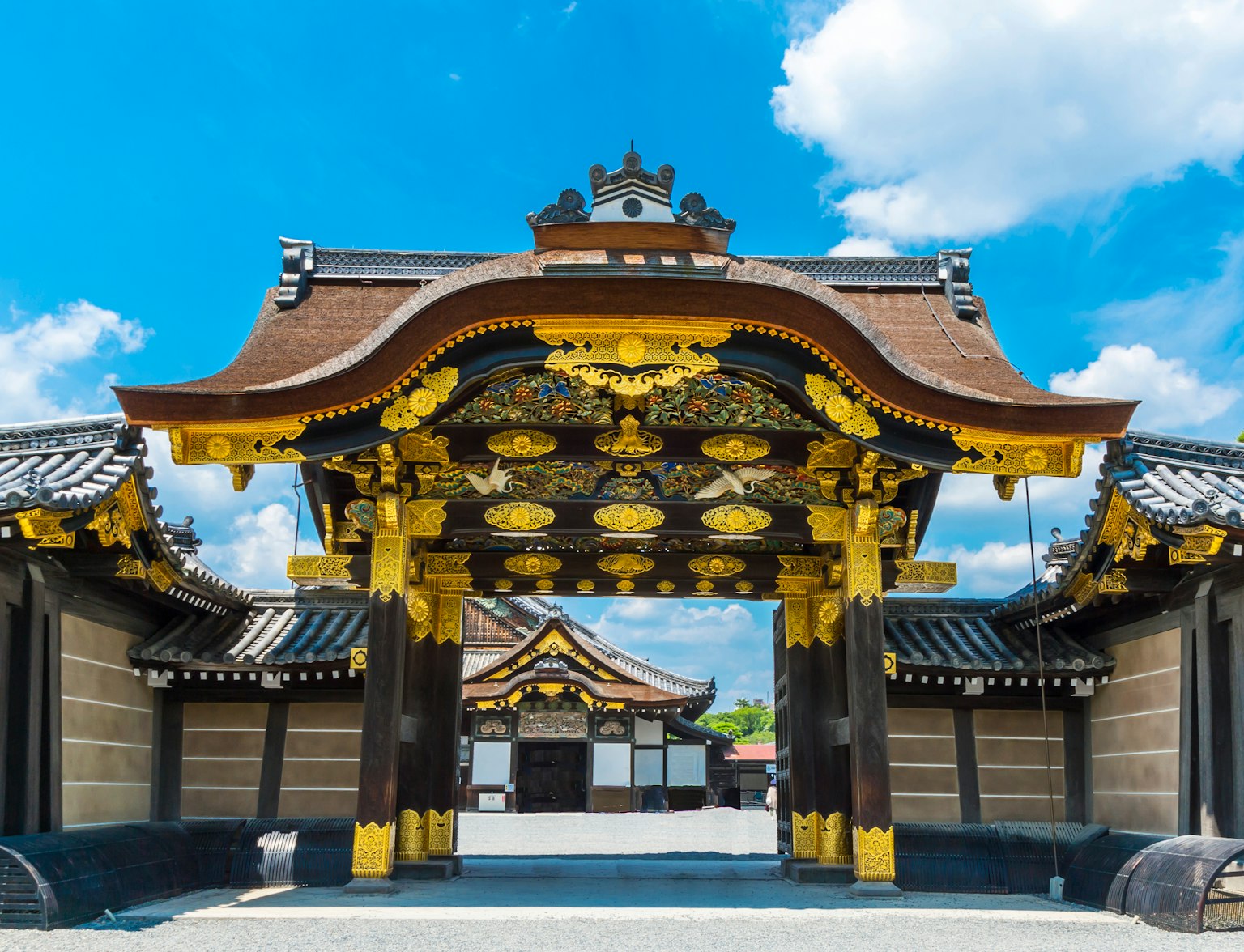
参观龙安寺,体验独特的岩石花园!
。地址:温泉位于龙安寺内,地址为京都市右京区龙安寺御蓮下町13。
开放时间:该机构全年开放,营业时间为上午10:00至下午5:00。
交通:距离岚电北野线的龙安寺站步行7分钟即可到达。
9. 月光庵温泉月光庵温泉为您提供了一次奢华的温泉体验,位于京都市中心。这家温泉是月光庵旅馆的一部分,这是一家传统的日本旅馆,为客人提供真正的
,以及温泉的舒缓益处。月光庵温泉的浴池充满了以其疗愈特性而闻名的天然温泉水。室内浴池提供了一个宁静的放松空间,而户外浴池则提供了周围风景的惊人视野。在享受完浴池后,您可以在旅馆中享受传统的怀石餐,使得您的月光庵温泉之行成为一次真正奢华的体验。地址

:月光庵位于京都市中京区西野京西月光町18-17。
交通:距离JR二条站和地铁二条站均步行10分钟,非常方便前往主要旅游景点和京都的市区。
温泉使用礼仪访问温泉需要遵循某些规则和礼仪。这确保每个人的体验都是愉快和尊重的。请牢记以下几个关键礼仪:
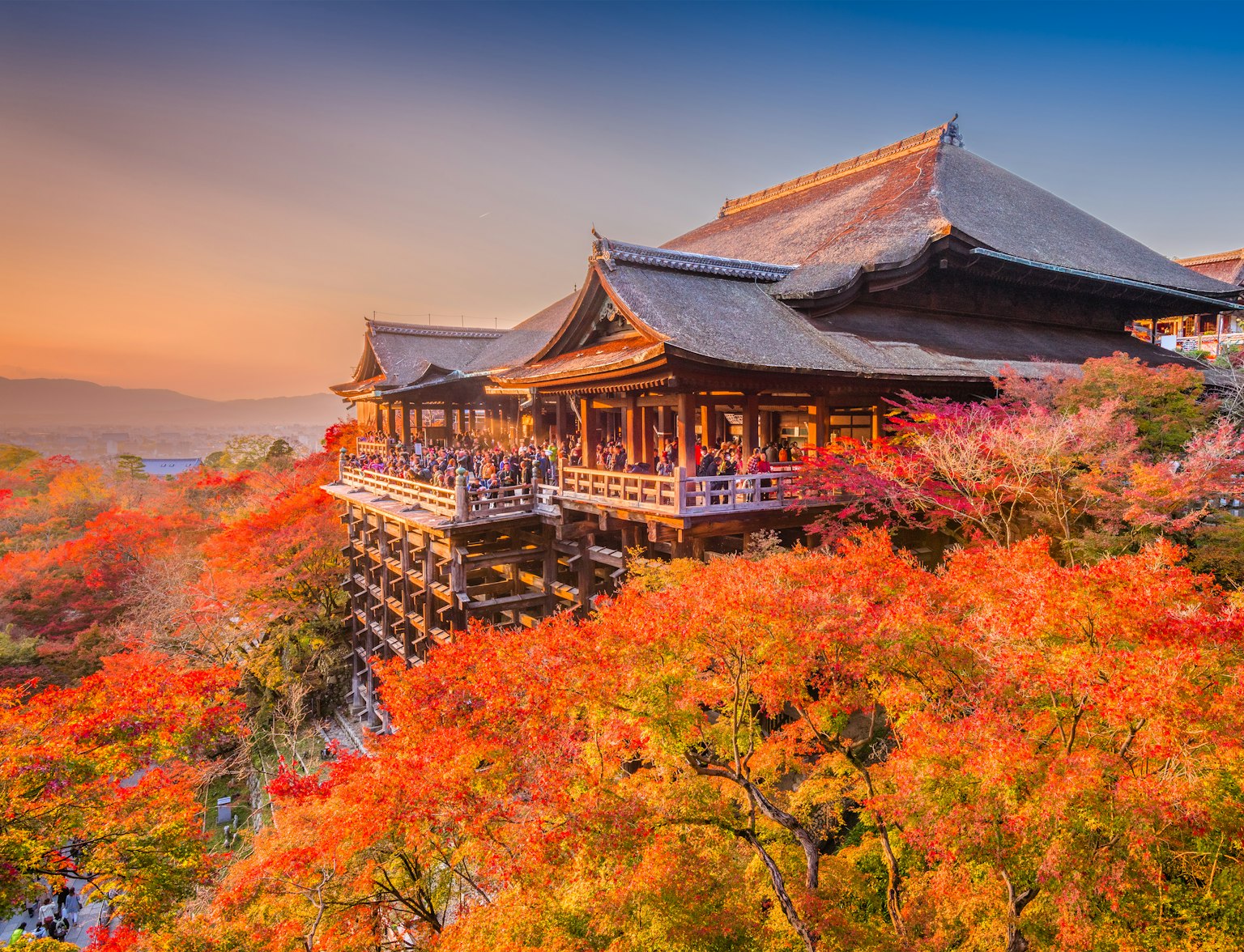
参观附近的二条城,参加此旅游。
:在进入温泉之前,通常需彻底清洁身体。通常提供淋浴区域以供此用。记住,温泉是用来浸泡和放松的,而不是洗澡。
2. 端庄:尽管大多数温泉要求裸体,但仍然重视端庄。走动时应用毛巾作为隐私屏障,但不要把毛巾放进水里。
3. 安静:温泉是放松的场所。保持谈话音量较低,避免溅水或游泳。
4. 考虑他人:在进入温泉之前,清洗掉任何汗水或乳液。如果你有长发,请将其束起,以避免触碰到水。
5. 纹身:传统上,由于与黑道(日本黑帮)的有关联,温泉不允许纹身。如果你有纹身,请提前确认温泉是否允许,或者是否可以遮盖。
在京都浸泡:温泉体验当我们结束对
京都9家最好的温泉的探索时,有一点是明确的 - 每家温泉都提供独特而丰富的体验。它们不仅仅是浸泡在热泉中,而是也在于拥抱宁静、理解传统和体验焕发活力。京都的温泉满足各种偏好的需求,无论你是在寻找奢华的休息地、深入历史,还是与自然的宁静沟通。因此,打包你的行李,让京都顶级温泉的疗愈之水成为你难忘的日本之旅的一部分。, one thing is clear - each onsen offers a unique and enriching experience. They are not just about soaking in hot springs, but also about embracing the calm, understanding tradition, and experiencing rejuvenation.
Kyoto's onsens cater to a variety of preferences, whether you're seeking a luxurious retreat, a dip into history, or a serene communion with nature. So, pack your bags and let the healing waters of Kyoto's top onsens become part of your unforgettable Japanese journey.
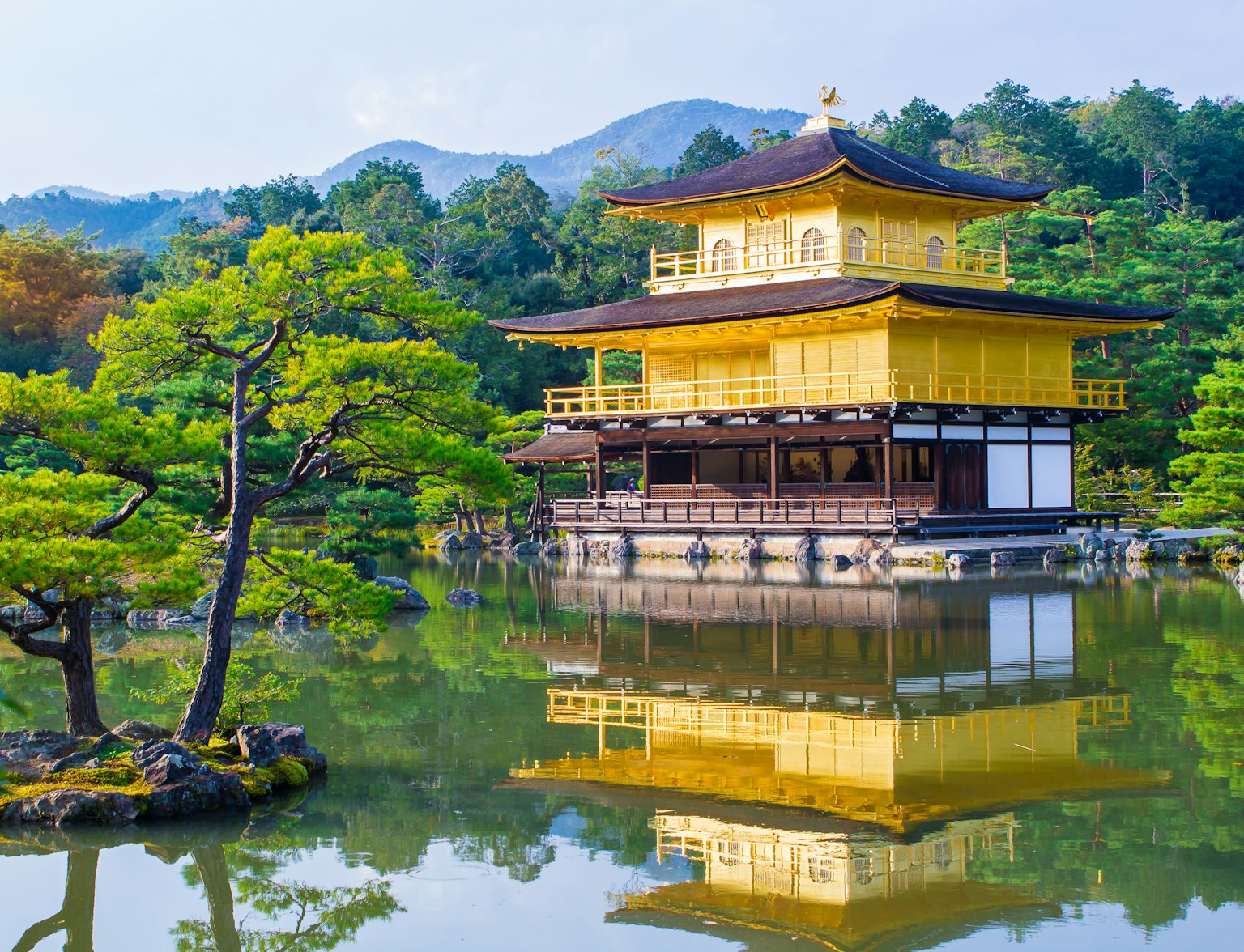
在定制的步行游中发现京都的隐藏宝石。



